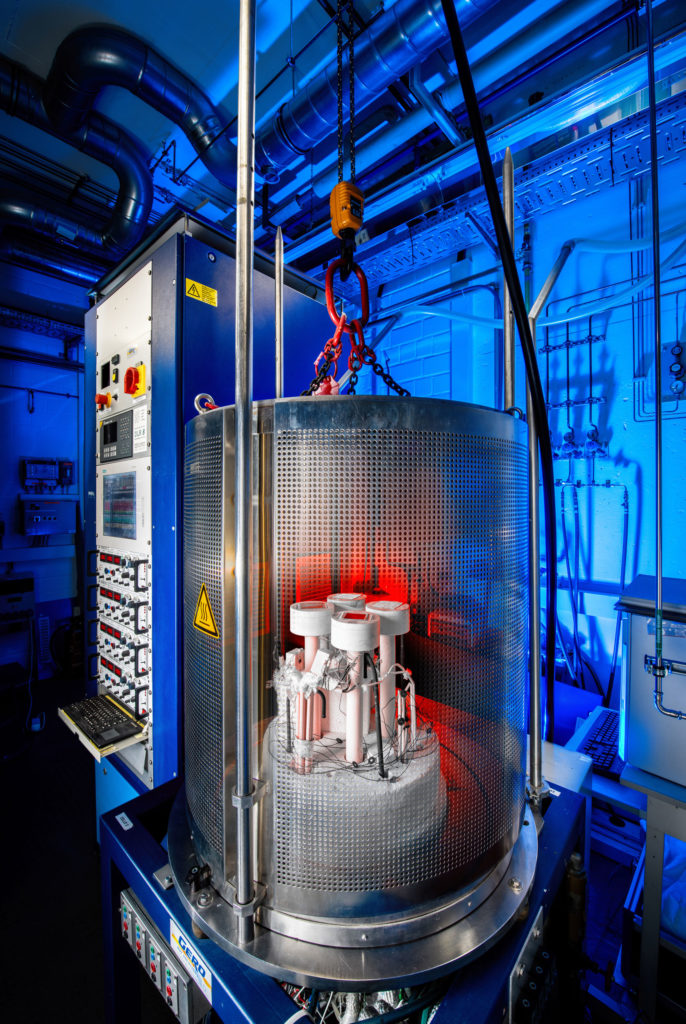Fuel cells, batteries and electrolysers for mobile and stationary applications
Generic fuel cell system with 1.5 megawatts output
Fuel cells are an important technology in efforts to decarbonise heavy goods traffic. In DLR’s project PEMScale1.5, nine DLR institutes from the energy, transport and aeronautics research areas are developing a generic fuel cell system that includes an electric propulsion system and has 1.5 megawatts of output. It is especially important to adapt the system to the specific requirements of ships, trains, commercial vehicles, and aircraft and to investigate concepts for bidirectional sector coupling.
Electrochemical energy technology – competencies and methods of analysis
Green hydrogen is a promising alternative for future low-emission energy systems. Electrolysers and fuel cells are ideally suited to producing hydrogen or other highly efficient fuels or converting them into electricity and heat. The DLR Institute of Engineering Thermodynamics is presenting methods for analysing the components of fuel cells and electrolysers in complex measurement systems. Other focus areas include approaches for characterising commercial catalysts and developing and examining new, long-life platinum-free materials.
High-temperature electrolysers – the next generation
High-temperature electrolysers (over 600 degrees Celsius) achieve the highest efficiency levels when hydrogen is generated through electrolysis. However, degradation and reduced long-term stability occur at these high temperatures. DLR has developed special operating strategies to prevent such outcomes. It is also building cells with innovative combinations of materials. The aim is to increase performance and efficiency and reduce the need for critical and rare raw materials. As such, DLR is now unveiling a new class of electrolytic cells based on an architecture that works with a metal-supported, proton-conducting ceramic. This new cell type offers many possibilities for Power-to-X applications and, if a particular configuration is used, for the electrochemical pumping of hydrogen.
Links:
- Main department page:
DLR – Institute of Engineering Thermodynamics – Electrochemical energy storage - Technical facilities:
DLR – Institute of Engineering Thermodynamics – Electrochemical energy storage – Technical facilities
German Aerospace Center (DLR)
Institute of Engineering Thermodynamics
Prof. Dr. rer.nat. K. Andreas Friedrich | Email Andreas.Friedrich@dlr.de


